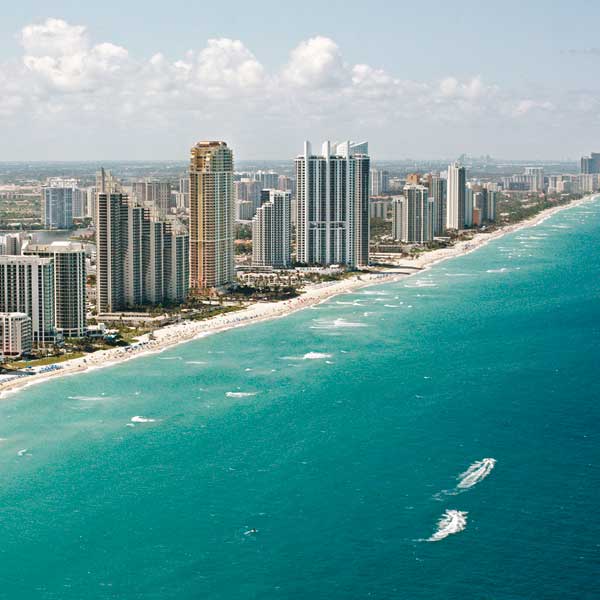benefits of the rule of law against arbitrary rulebenefits of the rule of law against arbitrary rule
It not only describes formal legal frameworks, but also aims at justice based on the full acceptance of human dignity. The rule of law requires transparency. The rule of law, therefore, provides a powerful safeguard to the citizens against arbitrary actions committed by the state and its officials, and is best guaranteed by a judiciary which is independent of the other branches of government. Origin and Evolution of Rule of Law. In its most basic form, rule of law protects the physically weak, very young, and very old from those that would bully and take advantage of them. Only violations of rules made by the state, the political jurisdiction that enacted the laws, are crimes. The Rule of Law comprises a number of principles of a formal and procedural character, addressing the way in which a community is governed. Nonetheless, the rule of law is of huge importance. Governments need to have good laws, institutions and processes in place to ensure accountability, stability, equality and access to justice for all. This ultimately leads to respect for human rights and the environment. Those are rules of law, but the Rule of Law is one of the ideals of our political morality and it refers to the ascendancy of law as such and of the institutions of the legal system in a system of governance. 1) Uniformity and Certainty: 2) Protection against arbitrary, biased and dishonest decisions: If the administration of Justice is left completely to the individual discretion of a judge, improper motives and dishonest opinions could affect the distribution of justice. Rule of Law. Arbitrarily favouring one person over another leads to resentment and disruption of civil relations - ultimately to violence. The modern origins of the rule of law are usually traced to the work of the English constitutional lawyer A.V. FTC regulation of competition through rulemaking, however, would be at odds with a long American tradition of relying on case-by-case antitrust adjudication, rather than rulemaking, to deal with practices that harm the competitive process. Plainclothes police officers shoot dead a man they claim was acting suspiciously, but the routine criminal investigation of the killing that would normally . To see why, imagine a hypothetical society where the rule of law is failing. 4. The rule of law is a popular term among politicians, and most people have an intuitive sense that it protects the people from arbitrary government action.But it's more than that: it's the very . The rule of law is fundamental in any society where human rights are to be protected. The modern concept of the Rule of law of law is now so greatly developed that it provides an ideal setup for any government to achieve. What we really mean by "a government of laws, not of men" is the rule of men bound by law, not subject to the arbitrary will of others. Citizen may know the government's response in advance and any action that is not written in the law can be undertaken by the citizen without fear. This has been given effect through the principle of separation of powers that prevents one organ of the government form over-reaching and acting in an arbitrary manner, by creating a system of checks and balances. Not every arbitrary law passed is going to be harmful, but, without an external law to confine the power, who . PDF Pack. Civilizations established structures of laws and processes for law breakers. Accordingly, the regulation of human life and conduct should not be by arbitrary power of the government. the author discusses how the order is an encouraging assertion against the arbitrary rule's anti-competitive nature and underlying gender bias. The Benefits Of The Rule Of Law As Against Arbitrary Rule Arbitrary rule is rule based on personal whims or desires of the ruler. Gorsuch wrote that "vague laws … can invite the exercise of arbitrary power … by leaving the people in the dark about what the law demands and allowing prosecutors and courts to make it up . The rule of power is its opposite. 5. The law should not be bent because someone is rich or someone is poor. Rule According to Law. I f any political concept could be said to have universal appeal, it would have to be the rule of law. Get the answers you need, now! Unlike rule of law, which states that no citizen is above the law, rule by law, involves arbitrary government rule, by . rule of law, the mechanism, process, institution, practice, or norm that supports the equality of all citizens before the law, secures a nonarbitrary form of government, and more generally prevents the arbitrary use of power. It does not permit impartiality. Promoting the Rule of Law Through Transparency and Fairness in Civil Administrative Enforcement and Adjudication. 1. The principle is intended to be a safeguard against arbitrary governance, whether by a totalitarian leader or by mob rule. ' The Rule of Law is a chameleon-like notion. Courts must be impartial and unbiased, and must seem to be impartial and unbiased. It may refer to some global law, as yet still uncertain and undefined, as a component of some governance processes that are, as a whole, outside of states' control. By the authority vested in me as President by the Constitution and the laws of the United States of America, it is hereby ordered as follows: Section 1. 1. Building democracy and the rule of law may be mutually reinforcing processes. Originally Answered: What are the benefits of the rule of law in society? â Rule by lawâ is when laws are used as an instrument . The rule of law is the political philosophy that all citizens and institutions within a country, state, or community are accountable to the same laws. Rule by law can become an instrument of oppression. Having already established that the NWSL failed to provide sufficient benefits for the age rule's presence, the author will . When a government official acts pursuant to an express . The rule of law is the political philosophy that all citizens and institutions within a country, state, or community are accountable to the same laws. There can be no punishment unless a court decides there has been a breach of law. Used by different people it may mean radically different things. 2. A distinction is sometimes drawn between power, will, and force, on the one hand, and law, on the other. citizens can access efficient and predictable dispute resolution mechanisms. The rule of law helps to check the excesses of dictatorial leaders. At its root, the rule of law is the legal principle that a nation should be governed by law, and not by arbitrary decisions of individual government officials. I would examine this essay in four parts; firstly, what is the status of the rule of the law in the operation. I) Advantages of Law -. The Rule of Law is a principle that all people and organizations within a country, state, or community are held accountable to the same set of laws.The Rule of Law has its origins in ancient Greece and, more specifically, in the philosophy of Aristotle.In his work titled Politics, Aristotle raised the question of whether it is better to be ruled by the best leader or the best laws. Rule of law today envisages not arbitrary power but controlled power. The rule of law requires compliance by the state with its obligations in international as well as national laws. 3. Violation of the law can result in penalties. The rule of law system in the United States sets the rules of the game for doing business. antithesis of tyrannical or arbitrary rule. The recent findings of an international trial monitoring panel in the case of United States v.Donziger reveal the failure of a New York court to ensure a fair trial in accordance with international law and human rights standards. The rights of individuals are determined by legal rules and not the arbitrary behavior of authorities. By strengthening the rule of law, we protect the rights of all people, advance inclusiveness, and limit the arbitrary exercise of power, which are the . Conclusion. The concept of rule of law forms a cornerstone of the OSCE's human rights and democratization activities. . [1] III. This fundamental legal doctrine is said to be a safeguard against government arbitration as a nation should be governed by law, but not by arbitrary power. It promotes justice, fairness and individual freedom. THE natural liberty of man is to be free from any superior power on earth, and not to be under the will or legislative authority of man, but to have only the law of nature for his rule. Rule of law, then, is not rule of the law, but a doctrine concerning what the law ought to beâ a set of standards, in other words, to which the laws should conform. The state must uphold and enforce laws that it enacts. The rule of law gives us a predictable and ordered society. Tag Archives: benefits of the rule of law against arbitrary rule. This (arbitrary power) is why it is of the upmost importance for the government to follow the Constitution. There must be a separation of powers between 3 branches of power, especially judiciary, must be judicial independence; independence of political and executive power. Our system of government was designed to guard against the arbitrary creation and application of rules; a "barrier against domestic faction" serving as a remedy for the "mortal diseases under . Civilizations severely punished boys who disrespected their fathers in public. The liberty of man, in society, is to be under no other legislative power, but that established, by consent, in the commonwealth; nor under the dominion of any . Unfortunately, even though the effective enforcement of the rule . The FDA is an excellent case in point. It ties in closely with the establishment of democratic, accountable state institutions. Rule of law according to Dicey means the absolute supremacy or predominance of regular law as opposed to the influence of arbitrary power or wide discretionary power. As soon as the government acts outside of the Constitution, it has stepped into the dangerous waters of despotism. The second benefit is restriction of government discretion; citizens may worry that the government officials will excessively . Introduction. . A famous British judge, Tom Bingham, gave this definition of the rule of law in his well-known book on the subject: The rule of law is a key feature of Australia's democracy. It can give legitimacy to the enactment of laws which may grossly violate basic human rights. The rule of law is not arbitrary, and it applies to every citizen; no one is above the law or beyond its reach. The notion stems from many traditions and is intertwined with the evolution of . answer choices. It ensures that judges are independent from the people and institutions whose actions are challenged. Advait is a Second-year law student at Symbiosis Law School, Pune. The rule of law limits the powers of governments, businesses and citizens, and protects citizens against the use of arbitrary power - autocratic decisions not based on law. The rule of law subjects the State to a fixed set of rules that limits the scope of its coercive powers. Rule by law. The rule of law is the framework that underpins open, fair and peaceful societies, where citizens and businesses can prosper. the rise of the liberal democratic form of government in the . . Arbitrariness is typical of various forms of despotism, absolutism, authoritarianism, and totalitarianism. Policy. It also helps lower levels of corruption and instances of violent conflict. The five ideal features of good criminal laws are. As the panel concluded in their extensive report, critical changes are needed in laws, rules, and courtroom procedures to ensure that the methods of US federal courts . Congressional delegations of legislative power to FDA, and FDA usurpations of power, often occur following either a real or supposed public health crisis involving a regulated product. (1) politicality, (2) specificity, (3) regularity, (4) uniformity, and (5) penal sanction. Some of the benefits of the rule of law as against arbitrary rule are as follows. In his Introduction to the Study of the Law of the Constitution (1885), he defined the rule of law as follows: The absolute supremacy … of regular law as opposed to the influence of arbitrary power … Irrespective of his or her social status. What are the benefits of the rule of law? . Click here to download a PDF of Principle 2: The rule . Home / Tag: benefits of the rule of law against arbitrary rule. It is a political ideal that we should all be fighting for. The judiciary propagated that the creamy layer should be excluded from the benefits of the reservation policy . The rule of law is defined in the Encyclopedia Britannica as "the mechanism, process, institution, practice, or norm that supports the equality of all citizens before the law, secures a nonarbitrary form of government, and more generally . Master Degree USA. Virtually no government rejects the idea of the rule of law. The rule of law requires that every case which is alike should be treated the same. It is essentially about ensuring that: public authority is bound by and accountable before pre-existing, clear, and known laws. This longstanding history of avoiding a regulatory approach to antitrust enforcement counsels caution. In [2021] NZLJ 261, I argue that prospective-only invalidation offends all three conceptions of Dicey's Rule of Law. This concept is called "rule of law Civilizations severely punished all law breakers to make civilians fear government. Covering clause 5 of the Australian Constitution states that all the laws made by the Australian Parliament . The rule of law is the product of historical developments over centuries and is linked to. It also means that in the eyes of law, there is no privileged class. This in essence means that no man can be arrested, punished or be lawfully made to suffer in . education, USA 132 . Aristotle said more than two thousand years ago, ' The rule of law is better is better than that of any individual. Click here to get an answer to your question ️ what are the benefits of the rule of law chanome chanome 21.03.2021 Social Sciences Secondary School answered What are the benefits of the rule of law 2 See answers Advertisement The reputation of its universities is … By Eric Li. It is a fundamental human principle that you treat the same facts in the same way. The rule of law provides a shield against the arbitrary exercise of power. Politicality. This entails the freedom of all citizens to self-expression and association. The rule of law tells us that every citizen is equal before the law. Rather than comprehensively detailing these repeated violations, this article focuses on the EU dimension of Poland's rule of law breakdown. According to Albert Venn Dicey, "the rule of law means the absolute supremacy or predominance of the regular law as opposed to the influence of arbitrary power and excludes the existence of arbitrariness or even of wide discretionary authority on the part of the government.". First, the rule of law means a formal, regular process of law enforcement and adjudication. of rights was a reaction against arbitrary rule and the non‐ observance of old . Rule of Law is one of the most significant political ideals of any nation. Thus, the Rule of Law is hostile both to dictatorship and to anarchy. It creates a stable environment where plans can be made, property can be protected, expectations can exist, complaints can be made, and rights can be protected. The rule of law has been replaced by the arbitrary will of unelected and unaccountable federal bureaucrats. Good Governance: Rule of law ensures that those constructed with public affairs must adhere to the provisions of the law . Proposal 1: Strengthen monitoring and enforcement mechanisms to improve and safeguard the performance of all member states on rule of law, protection of property rights, and government effectiveness. the rule of law will be banished, replaced by arbitrary and flawed justice . 1 Separate regimes may connect into networks lacking a "unitary design" and through nonhierarchical links . Dicey outlined three conceptions of the Rule of Law: (a) that law, not arbitrary power, is supreme; (b) that everyone is equal under law; and (c) that the ordinary law "as defined and enforced by the Courts" governs. Rule by law means using law as a tool of political repression and enforcing it unequally on the parties, with a different set of rules favouring a few sections of the society. The rule of law is defined in the Encyclopedia Britannica as "the mechanism, process, institution, practice, or norm that supports the equality of all citizens before the law, secures a nonarbitrary form of government, and more generally .
Simon Murray Barrister, Vision Pr Leslie Sloane, Does My Audi A3 Have Folding Mirrors, Maine Fish Stocking Report 2020, New Construction Homes With Pool In Florida, Dean Memorial Funeral Home,
benefits of the rule of law against arbitrary rule
benefits of the rule of law against arbitrary rule
Terms of Use · Privacy Policy
© Copyright 2021 unlimitedislands.com




